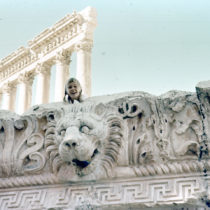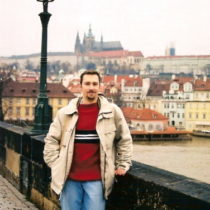Landscape Architecture for Landscape Architects › Forums › GENERAL DISCUSSION › Using landscape to promote social interaction in a park
- This topic has 1 reply, 6 voices, and was last updated 16 years, 1 month ago by
 nca.
nca.
-
AuthorPosts
-
January 18, 2010 at 8:52 pm #171520
Luqman
ParticipantHello to all land8lounge members
When designing a place, surely we want the place to be used to the maximum as it can be..
I was wondering:
How can we attract people to go to a park; using it,live it, experience it and appreciate it..
And how can we make a park exuberant (livable park throughout the year).January 19, 2010 at 1:29 pm #171534 ncaParticipant
ncaParticipantI think there are lots of different types of ‘parks’ or public space whether the context is more urban or less developed. A National Park in the United States, for example, might rely almost entirely on its geographic location and natural features to draw users, whereas a community park in an urban neighborhood might vary more greatly in terms of program and and use.
How to make a park more livable throughout the year is a fundamental reason we use the pallette we do-plants, trees, landform, rocks, and architecture. If you’re designing a park, spending time on the site is key. Know all the discomforts- the wind, the bugs, the hot sun, the cold, etc..
Too often in the US we design parks that are flat and safe. We have trouble justifying open space without a set of specific criteria like baseball, playgrounds, swings, tennis, etc. I think there’s a lack of good passive public space in the US, especially in suburbia.
January 19, 2010 at 6:06 pm #171533 Andrew Garulay, RLAParticipant
Andrew Garulay, RLAParticipant“Anatomy of a Park” is the book that was used to teach these concepts when I was in school. Are you familiar with that? I think it had good information, although I do not design parks.
January 19, 2010 at 7:49 pm #171532Luqman
Participantthank you andrew..
i’m not familiar with that book. do you have the book or where can i get the book?January 19, 2010 at 10:01 pm #171531 Andrew Garulay, RLAParticipant
Andrew Garulay, RLAParticipantAmazon.com has it.
January 20, 2010 at 12:57 am #171530 Trace OneParticipant
Trace OneParticipantwilliam whyte discovered that you need to let people move things around in the park..give them things they can interact with..and sound – can be a design element.. the plantings should NOT dictate the design..circulation is number one, besides drainage..don’t be too fussy – AE Bye said all you need for a good park is a tree stamp and a bench stamp..Don’t get snobby about benches – can’t have too many, really..varied paths – ways of walking..slow path, fast path..I like “A pattern Language”, which seems to be having some sort of resurgence among architects, thank god..
January 20, 2010 at 2:34 am #171529 ncaParticipant
ncaParticipant‘ the plantings should NOT dictate the design…’
You mean, like…never? That’s a pretty big statement.
‘circulation is number one..’
IS it not sometimes appropriate to think about having places to go before you make ways to get there?
January 20, 2010 at 4:58 am #171528 BoilerplaterParticipant
BoilerplaterParticipantNYC does a lot of programming for its parks, in the way of organized events and sports in addition to allowing and even encouraging concessionaires. Central Park has the Woolman Rink for skating in the winter, a pond specifically for toy boats in summer, concerts, plays, etc. The New Urbanists seem to feel that public space needs to be filled with all kinds of leisurely consumerist attractions, which I don’t necessarily agree with. As far as livability goes, at the very least you need basic amenities like restrooms and shelter from the weather. Depending on the climate, the choice of plantings can go a long way toward making the microclimate more amenable.
January 20, 2010 at 11:41 am #171527 Trace OneParticipant
Trace OneParticipantNIck, I strongly believe that, as a general rule (of course if you have the General Sherman Oak or something, that is different..) if you let the plantings dictate the design, you are not letting them be plants..I feel the same for the use of color in plantings – should be very minor element..What we have, that architects dont’ is weather..Plants are going to look different, and you have to let them.. Plants are not paintings, and should not be used as such….
As for circulation being first (after environmental stuff – drainage is extremely important also, an can dictate design..) I believe that the path is the basis for the landscape experience..The path has places to go on it, it has places to pass through – it encompasses all the experiences of landscape..If you don’t create some believable and true form of circulation, you have not created a successful park..Seems fairly self-evident to me, actually..
January 20, 2010 at 4:58 pm #171526 ncaParticipant
ncaParticipantBUT,
some of the best places most fond in my memory didn’t have any path, but certainly a destination. The path was undefiuned and thats what made the journey so great..it was about discovery, whereas if all our parks are organized around (formal) paths I think you have a museum of landscape (plants trees, lawn, outdoor stuff, rather than a true subjective experience.
I’m not necessaril disagreeing by the way, I’m just challenging for sake of dicussion. I think we could do better in advocating for unprogrammed wild space in general.
January 20, 2010 at 6:00 pm #171525 Andrew Garulay, RLAParticipant
Andrew Garulay, RLAParticipantDifferent parks should do different things. We have all seen benches that never get used and we have all seen makeshift seating where people want to congregate for one reason or another where benches were not put in. Parks should be responsive as well as creating a response.
January 20, 2010 at 11:20 pm #171524 Roland BeinertParticipant
Roland BeinertParticipantI’m not sure whether people will completely disagree with me on this or not. I’d say one of most important things for a successful park, and, unfortunately, something we LA’s have little control over, is what surrounds the park. If you have a single type of use, like residential, then you will only get people using the park when they are home from work. Or if you only have offices, then you just get people using it at lunch time.
If you have a mix of uses surrounding a park (housing, offices, shopping, restaurants, etc.), then the park will be used more because of the greater variety of potential users. So, a great design and good programming are important, but what surrounds the park is just as important, if not more important.January 20, 2010 at 11:42 pm #171523 Trace OneParticipant
Trace OneParticipantRoland is certainly correct, we all remember the park in the middle of I think it was Chevy Chase that was just a flat city block covered with fake grass – extremely popular, the right place for public space..
and Nick,how is going through undefined woods to a destination NOTa path? Even the way you describe it – you are describing a path…. don’t you think a designer can design an ambiguous path, a gnarly path – it is still a journey. I maintain – the path is the basic building block for all landscape experiences..
January 21, 2010 at 12:03 am #171522 Andrew Garulay, RLAParticipant
Andrew Garulay, RLAParticipantActiviy – experience – requirement
Circulation is an activity that takes place in every park to one degree or another. It is our job to determine the appropriate experience for the user(s). Then we need to figure out the physical requirements to achieve that experience. I think that Lugman is in search of information on what some of those experiences might be more desirable for one situation or another and then what physical built work has been documented to be effective at making it happen.
I want to say that there is another book called “People Places” or something like that which discusses how people interact in public spaces. It also discusses what can be built to facilitate these interactions. I might have that title all messed up, it is a bit of a distant memory.
January 21, 2010 at 12:58 am #171521 ncaParticipant
ncaParticipantThere’s a quote: Always design something according to it’s larger context…A door in a house, a house in a city plan, a city plan in an environmnnet..’ or something like that..
-
AuthorPosts
- You must be logged in to reply to this topic.


